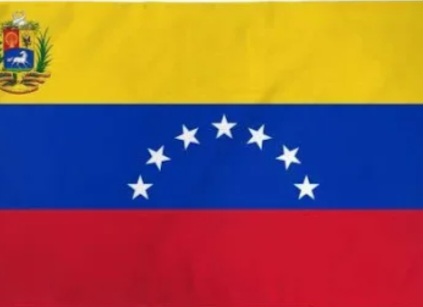The Trump administration is ending a key immigration program that has protected hundreds of thousands of Venezuelan migrants in the U.S. from deportation, potentially leaving many without legal status by spring, according to a government notice.
Over the weekend, Homeland Security Secretary Kristi Noem revoked one of two Temporary Protected Status (TPS) designations for Venezuela.
The U.S. had previously determined that conditions in Venezuela were too dangerous for migrants to return. Established in 1990, TPS grants temporary protection from deportation and work authorization to individuals from countries affected by war, natural disasters, or other crises, though it does not offer permanent residency.
The Venezuelan TPS program is the largest of its kind, currently shielding over 600,000 migrants. With the administration’s decision, roughly 350,000 Venezuelans who obtained TPS under the 2023 designation will lose their work permits and deportation protections two months after the ruling is formally published. Those covered under an earlier 2021 designation will retain their status until September, though it, too, could be phased out.
Without TPS, affected individuals who lack another form of legal status will no longer be authorized to work and could face detention and deportation. Immigration and Customs Enforcement (ICE) has intensified enforcement under President Trump.
On Saturday, Trump announced that Venezuela had agreed to accept deported migrants from the U.S., reversing its previous stance.
This rollback aligns with broader efforts by the Trump administration to restrict humanitarian immigration programs. Officials have also drafted plans to revoke protections for Cubans, Haitians, Nicaraguans, and Venezuelans who arrived under Biden-era sponsorship programs.
TPS for Venezuelans was first introduced in 2021 by the Biden administration due to worsening conditions under President Nicolás Maduro. According to the United Nations, nearly 8 million people have fled Venezuela, with many settling in South America and hundreds of thousands reaching the U.S. border during Biden’s presidency.
While Noem acknowledged ongoing challenges in Venezuela, she argued that extending TPS was not in the national interest, citing difficulties faced by U.S. communities in accommodating migrants and concerns over criminal organizations like the Venezuelan gang Tren de Aragua. She also suggested that TPS extensions contribute to illegal immigration by encouraging more people to travel to the U.S.
Biden had significantly expanded TPS protections, offering them to migrants from countries in crisis, including Afghanistan, Haiti, and Ukraine. His administration also reversed Trump’s previous attempts to terminate TPS for several nations, including El Salvador. However, many Republican lawmakers, along with Trump officials, argue that the program has been overused and improperly prolonged. Trump has prioritized limiting TPS, instructing his administration to keep its scope restricted.
Despite this stance, some Republican lawmakers have urged Trump to maintain protections for Venezuelans. Florida Congressman Carlos Gimenez, in a letter Friday, called for a solution, emphasizing that most Venezuelan TPS holders are law-abiding individuals seeking freedom.













